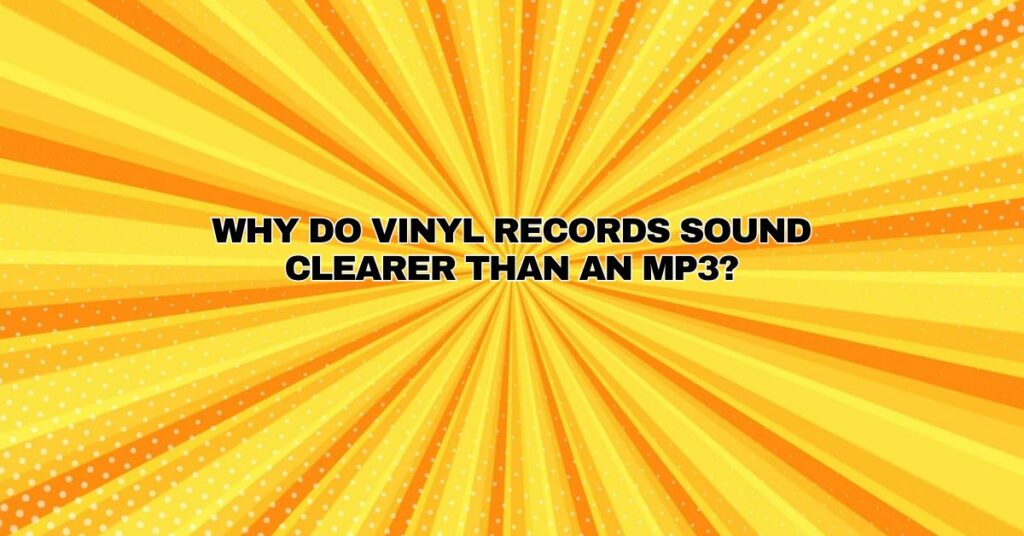In today’s digital age, where music can be instantly streamed or downloaded in various digital formats, vinyl records may seem like a relic of the past. However, vinyl records have been experiencing a resurgence in popularity, and many audiophiles continue to swear by their superior sound quality. One of the central arguments in favor of vinyl records is their perceived clarity when compared to digital formats like MP3. In this article, we will explore the factors that contribute to why vinyl records are often considered to sound clearer than MP3 files.
1. Analog vs. Digital: The Fundamental Difference
At the core of the vinyl vs. MP3 debate is the distinction between analog and digital audio. Vinyl records are analog in nature, meaning that they capture and reproduce sound as a continuous, physical waveform. MP3, on the other hand, is a digital format that represents audio as discrete, numerical data points.
The continuous nature of analog audio, like that of vinyl records, provides a more faithful representation of the original sound. In contrast, digital audio, including MP3, captures sound by sampling it at discrete intervals, potentially missing nuances and subtleties present in the analog signal.
2. Lossless vs. Lossy Compression
MP3 is a lossy audio compression format. In the process of creating an MP3 file, data that is deemed inaudible or less critical to the listening experience is discarded to reduce file size. While this compression significantly reduces the file size, it also compromises audio quality by removing some of the original data.
On the other hand, vinyl records are inherently lossless; they reproduce the entire analog waveform without any data compression or loss. This full representation of the sound signal contributes to the clarity and richness of vinyl records.
3. Resilience to Clipping and Overloading
In digital audio, sound can easily clip or overload when the volume reaches a certain threshold, leading to unpleasant distortion. This is especially problematic in MP3s and other digital formats because they have a finite limit to the number of amplitude values they can represent.
Vinyl records, on the other hand, are more resilient to overloading because they can accommodate a wide dynamic range. When vinyl records reach their upper limits, they tend to exhibit a softer, more gradual distortion, which some listeners find more forgiving and less harsh than the digital clipping of MP3s.
4. Subjective Listening Experience
The human ear is a complex organ capable of detecting a vast range of sounds and nuances. Vinyl records, with their analog nature, are known for preserving the subtle details and harmonics present in the original sound. Audiophiles often describe vinyl as having a warmer, more natural sound that feels closer to the live performance, enhancing the listening experience.
In contrast, MP3 files, while convenient for their small file size and portability, can sometimes lack these finer details and harmonics. This can make the listening experience feel more clinical or sterile compared to vinyl.
5. Vinyl Record Playback Equipment
Another critical factor in vinyl’s perceived clarity is the playback equipment. High-quality turntables, phono cartridges, and amplifiers can significantly enhance the sound quality of vinyl records. Audiophiles often invest in premium audio equipment to achieve the best possible sound from their vinyl collections.
Conclusion
While vinyl records offer a clarity and depth of sound that many find superior to MP3 files, it’s essential to recognize that this perception can be subjective. Personal preferences, audio equipment, and listening environments all play a significant role in how individuals experience and evaluate sound quality.
In the end, the choice between vinyl records and digital formats like MP3 largely depends on individual preferences and priorities. Whether you prefer the nostalgic warmth of vinyl or the convenience of digital, the most important aspect of music enjoyment is the connection you feel to the music itself.


